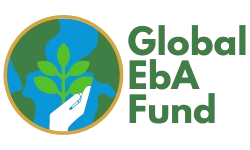Removing barriers to access finance from the National Cacao Plan in Costa Rica: cacao agroforestry for rural development and landscape restoration and adaptation
Project Information
This project sought to remove technical, value chain and financial barriers for farmers to participate in the Costa Rican Plan Nacional de Cacao while reducing the vulnerability of farmers and biodiversity to climate change (CC). Ecom helped smallholder farmers and communities adapt to CC through agroforestry practices for cacao production, ensuring that coffee producers threatened by CC have an option to shift to cacao production, and generated a strategy that maximises the positive impact on biodiversity conservation and resilience from local to country levels.
Ecom is one of the biggest global traders of coffee, cacao and cotton sugar. Ecom’ goal is to secure the long-term future of coffee, cocoa and cotton – a future where farmers are resilient to the impacts of climate change and changing commodities prices, and where their livelihoods improve. A future where crops are grown with efficient use of resources that protect and regenerate nature, and where transparent, traceable supply chains ensure long-term sustainable change.
Ecom is collaborating with the Cornell Lab, an organization dedicated to advancing the understanding and protection of the natural world. The Cornell Lab joins with people from all walks of life to make new scientific discoveries, share insights, and galvanize conservation action. Ecom and The Cornell Lab have been collaborating since 2017, developing a Blueprint for Landscape Restoration through Agroforestry, from which this project builds upon.
Project Achievements
With a strong public-private partnership under the Northern Cacao Platform, benefitting low-income cacao farmers, the project incorporated a commercial component into the EbA program, facilitating market access and enhancing the sustainability of the value chain.
1. Developed Climate and Biodiversity Maps: Nine maps with climatic variables were modeled to assess the vulnerability of cacao and farmers under various scenarios. Additionally, the Ornithology Lab at Cornell University generated nine maps of suitable cacao areas and one map depicting biodiversity status and biological corridors.
2. Produced Knowledge Products: Five documents on climate change adaptation and resilience were published, including the Climate Change Ecosystem-based Adaptation Plan.
3. Enabled Commercial Market Access: Commercial contracts enabled 88 farmers to access international markets, resulting in USD 65,000 delivered to producers in kind (regenerative agriculture packages) as part of the premium paid in the contracts.
4. Increased Farm Profitability Through Low-Carbon Practices: Technical assistance and research in demonstrative plots resulted in a USD 0.14/kg profit increase due to the application of low-carbon fertilizers, which boosted productivity with 25% fewer carbon emissions. The average revenue per farm increased by USD 450.


